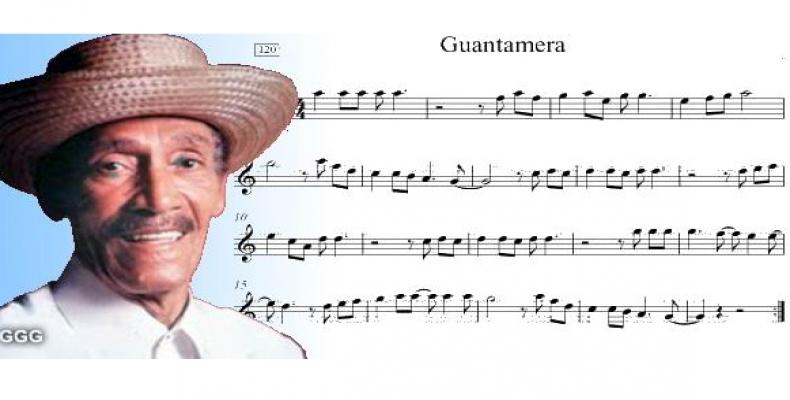José Fernández Díaz was born on 5 September 1908. In spite of the poverty, he had to endure during his childhood, he strived to provide for his family. Located in Los Sitios, at the centre of Havana, he earned his living by being a shoemaker and a newspaper vendor, however his musical proclivities caused him to be a part of many groups in the 1920s. This apprenticeship was the basis for Joseíto’s creative ingenuity when he was on the radio.
José Martí, in one of his renowned works about human excellence, points out the presence of those who are deficient in wealth yet not disheartened, and those who are affluent but not snobbish. Fernández, from the first group, cultivated several genres and left us with songs such as La Guantanamera, Amor de madre and Elige tú, que canto yo. His peers remembered him as the King of Melody, a nickname that captured the emotional qualities, unique style, and impressive vocal range of this talented singer from Havana.
The Cuban intellectual, journalist and essayist Ciro Bianchi remembers him as a tropical Quixote. This slim, tall man, wearing a white guayabera and white trousers, armed with a Panama hat and accompanied by his rhythm and elegance, created one of the most popular Cuban songs in the world.
La Guantanamera, composed in 1928, gradually became a popular reference. By 1943 Joseíto had an exclusive contract with RCA Victor. Three years later, he expanded the song’s scope with performances on the CMQ programme El suceso del día. There he played it to accompany the stories of the décimas or espinelas, composed by a poet and reporter to recount the events of the Red Chronicle.
The show lasted 14 years and was heard all over Cuba. During this time, the song enlivened the commentaries and became even more famous. However, this version is not the one that remains today.
In the 1950s, the Spanish composer Julián Orbón made a four-stanza version of José Martí’s Versos sencillos, with a metre adapted to the eight-bar copla performed by Joséíto, who had already recorded the composition with his Orquesta Típica in 1941.
Joseíto Fernández and Pete Seeger Photo: Habana Radio
Echoes of La Guantanamera reached New York when Héctor Angulo, who was teaching at a children’s camp, performed Orbón’s version. The composition caught the attention of the American folk singer-songwriter Peter Seeger.
After several arrangements, he added it to The Weavers’ repertoire and recorded the single on a long-playing record during a concert at Carnegie Hall in 1963. Entitled La Guantanamera, the song achieved international fame. Two years later, this fame was cemented by a version by the trio The Sandpipers. Performances by other personalities and groups only increased as time went on.
There were those who questioned Fernández’s appropriation of a popular tune. Its originality, however, lies in the fact that it bears no resemblance to other compositions, apart from references to genres such as son, punto and guajira.
As Ciro Bianchi points out:
«It was always an honour for Joseíto to have verses by Martí incorporated into his melody. He himself came to sing it in this version, and he did it the way it is done on the island: casuistically incorporating new Martí´s verses and suppressing others, unlike Seeger’s version, which always includes the same verses. He once said that «Guantanamera has always been a protest song, a song of denunciation, because it reflects the sadness and misfortune of a people, and by demanding welfare and justice for that people, it also demands it for itself.»
In one of his maxims, the Cuban writer Edmundo Desnoes said that underdevelopment is the inability to gain experience. When historical figures, their achievements and their transcendence are remembered, the vision of a person of flesh and blood, common to the rest of us, is often overlooked.
Those who have had the opportunity to meet Joseíto often emphasise his reverence, respect and kindness towards others. Just as Cuban music is more than clave and rumba, José Fernández is more than La Guantanamera. His legacy, sometimes distant, sometimes sporadically present, deserves to inhabit our memory. The memory of the man who gave it life.


Deje un comentario